IEEE Transactions on Consumer Electronics
Information
Impact factor: 4.3 (2022)
ISSN: 0098-3063
The IEEE Transactions on Consumer Electronics (TCE) issues are released quarterly, with past editions accessible via the Xplore site.
In line with IEEE's standards for publication timeliness, we evaluate manuscript processing speed using two key metrics: S21D (average weeks from submission to first decision) and S2OP (average weeks from submission to online posting).
Our dedicated TCE team is committed to achieving the following targets in the review and decision-making process:
S21D ≤ 10 wks
S2OP ≤ 24 wks
New Policy Effective February 13, 2024: In our ongoing effort to ensure timely reviews of submissions, should an Associate Editor (AE) or Guest Editor (GE) be unable to finalize a decision within 14 days past the due date, the Editor-in-Chief (EiC) or Senior Editors (SE) will step in to make the final decision on their behalf.
Scope
The IEEE Transactions on Consumer Electronics (TCE) is at the forefront of exploring the multifaceted engineering and research areas related to consumer electronics, spanning communications, control systems, informatics, entertainment, computational intelligence, and standardization. TCE provides a comprehensive platform that discusses theoretical concepts, modern development methodologies, hands-on implementation, industry trends, standardization, regulatory frameworks, and best practices.
Prominently, TCE publishes original research, State-Of-The-Art (SoA) papers, industry papers*, tutorial papers**, standard application case studies, literature reviews, innovative technological advancements, practical insights, and instructive surveys, enriching the knowledge base for consumer electronics professionals and enthusiasts.
*Industry Paper welcomes papers that specifically focus on consumer applications with a direct connection to consumer technologies/electronics. Unlike our traditional emphasis on theory development in regular or special issue TCE papers, this category prioritizes practicality and tangible outcomes. Authors are encouraged to provide extensive data, experiment results, analysis and real-world applications to support their findings.
**Tutorial Paper demands insight on the technological development in the specified direction.
***TCE Letter is being constructed and may be in place soon, date to be confirmed.
Topics of TCE
The topics covered by TCE are broad and diverse, encompassing but not limited to:
Application-Specific CE for Smart Cities (SMC)
Audio/Video Systems and Signal Processing (AVS)
Automotive CE Applications (CEA)
Consumer Power and Energy (CPE)
Consumer Systems for Healthcare and Wellbeing (CSH)
Entertainment and Gaming (ENT)
Human-Machine Interaction and User Experience (HMI)
Internet of Things, Internet of Everywhere and Edge Computing (IOT)
Machine learning, Deep learning and AI in CE (MDA)
Quantum in Consumer Technology (QCT)
Security and Privacy of CE Hardware and Software Systems (SPC)
Smartphone and Mobile Device Technologies (MDT)
Virtual Reality, Augmented Reality and Displays (VAR)
Wireless and Network Technologies (WNT)
Author instructions
lORCID Requirement: A valid ORCID for at least one author is mandatory.
lSubmission Platform: Use ScholarOne for all submissions.
lManuscript Preparation: Employ the IEEE template selector for formatting. Access the SoA template here and find author guidance at the IEEE Author Center.
lData Sharing: Authors can upload datasets up to 2TB to IEEE DataPort (free or at low cost for Open Access). Including data with your article can enhance its credibility and facilitate reproducibility. When submitting your manuscript via ScholarOne, you can include your dataset's DOI and title. Access IEEE DataPort using this linkto manage your data submissions.
lInitial Submission: Authors are to submit only the camera-ready PDF file. Source files (e.g., Word, LaTeX) will be requested upon acceptance.
lTrademark Policy: Manuscripts containing commercial product names, part numbers, or trademarks will not be accepted.
l Scope Description: Your manuscript must include a clear description of its relevance to Consumer Technologies/Electronics. Lack of relevance will result in administrative rejection.
lSimilarity Index: The similarity score must be below 30%, not including bibliographies and biographies.
lFile Size Limit: Submissions are restricted to a maximum file size of 40MB.
lPost-Acceptance: Upon acceptance, authors will receive instructions to complete the mandatory IEEE Copyright Transfer & Export Control Form via email.
lAuthor Biographies: Biographies for all authors must be provided with the accepted manuscript.
lPage Limits and Charges: The recommended maximum length is 12 pages for technical papers and 20 pages for survey papers. Manuscripts exceeding 8 pages will incur a charge of 250 USD per additional page. For instance, If your manuscript has 12 pages finally, 1000 USD will be charged. If your manuscript has 20 pages finally, 3000 USD will be charged.
lLanguage Support: English Editing Services are provided for non-native speakers to enhance manuscript quality.
lInvited Papers: Submit 'Invited Paper' nominations to the Editor-in-Chief at kf.tce.eic@gmail.com.
lBan "Lena Image": Following the guidelines established during the PSBS meeting in 2023, IEEE has updated its submission policy. Effective immediately, papers containing the 'Lena image' will not be accepted for submission.
For queries on submission or review, contact EiC, Kim-Fung Tsang at kf.tce.eic@gmail.com, and cc tce.eic.assistant2@gmail.com.
Policies and guidelines
1) IEEE Peer Review Policy
Submissions to IEEE TCE adhere to IEEE's peer review standards, IEEE PSPB Operations Manual's standards (sections 8.2.1.C & 8.2.2.A), ensuring each manuscript is evaluated by at least three independent reviewers via a single-anonymous process, where the identities of the reviewers are not known to the authors, but the reviewers know the identities of the authors.
2) IEEE Copyright Policy
Upon paper acceptance, authors must digitally sign the IEEE Copyright Form in compliance with U.S. Copyright Law, facilitated through the eCF system.
3) IEEE Plagiarism Policy
IEEE's policy covers multiple submissions, plagiarism, and author website posting. Authors must acknowledge and comply with these when submitting; non-compliance may affect future IEEE publication opportunities.
4) Article Processing Charges (APC) Waiver Policy
Open access APCs are waived or lowered for corresponding authors from low-income countries. Contact CCC <IEEESupport@copyright.com>for details. TCE does not offer additional APC waivers.
5) IEEE Author Center
The IEEE Author Centerprovides comprehensive guidance, including ORCID registration and style guidelines.
Other Policies
Vetting Advisory Committee Member
Vetting Advisory Committee Members assist in the evaluation of contentious papers as assigned by the Editor-in-Chief (EiC). The responsibilities will include, but are not limited to:
- Conducting thorough reviews of the papers.
- Casting informed recommendation votes on paper decisions.
- Providing detailed explanations for my recommendations.
TCE Awards
New awards have been introduced for the IEEE Transactions on Consumer Electronics, designed to acknowledge the exceptional contributions of the journal's reviewers, associate editors, guest editors, and special sections. The categories include the Best Reviewer Award, Best Associate Editor Award, Best Guest Editor Award, and Best Special Section Award. These accolades recognize individuals who demonstrate outstanding performance in terms of workload management and efficiency within the journal annually. Awardees will be announced at the annual ICCE conference hosted by the Consumer Technology Society (CTSoC).
Special Section (SS)
Please submit your SS application with the following two steps:
1. Fill out the application form at: https://forms.gle/wGaMHLkyQgxiG9Cc8.
2. Send the documents (prepared with the templates) via email to EiC at kf.tce.eic@gmail.com and copy tce.eic.assistant2@gmail.com: (1) Proposal; (2) GE forms A&B; (3) CFP; (4) SS Abstract (Approx 300 words, No template).
lSpecial Section Proposal Template
lSpecial Section Call-For-Paper Template
To maintain the integrity of a Special Section (SS), certain criteria must be met. Papers may be merged to the regular track if:
- 1) Less than five high-quality papers are accepted by the SS.
- 2) The review timeline does not adhere to that of the SS proposal.
- 3) The Editor-in-Chief may approve a transfer to expedite publication, with the Guest Editors' agreement.
-
Guest Editors are responsible for monitoring paper statuses in accordance with the schedule set during the application of their Special Section (SS). They are also invited to submit a Guest Editorial, which should summarize the SS and the papers accepted therein, to the 'Guest Editorial' portal on ScholarOne. This submission must be completed by the designated deadline, specifically 5.5 months after the SS closing date. Failure to submit the Guest Editorial by this deadline will be interpreted as a forfeiture of the opportunity to contribute the Editorial.
For instance, if the SS concludes on January 31, 2024, the Guest Editorial must be submitted by June 15, 2024.
Call for Special Section(s) Application:
TCE is standing at the forefront of enabling technologies for consumer technology/electronics, and would like to call for curiosity driven, nature inspired research topics for Special Section proposals. Potential authors and authors are welcome to propose creative topics. Topics of interest may include but not limited to the followings:
- Metaverse related consumer electronics/technologies;
- Quantum computing consumer games and electronics;
- Nature inspired consumer applications;
- Risks and cyber threat analysis for consumer applications;
Ongoing Special Section(s):
Special Section: TinyML for Empowering Low-Power IoT Edge Consumer Devices:ends on February 29, 2024 April 15, 2024
Special Section: Emerging Signal Processing Techniques and Protocols for Interconnected Consumer Electronics:ends on February 29, 2024 April 30, 2024
Special Section: AI-Generated Content Empowered Healthcare Electronics:ends on March 31, 2024 May 31, 2024
Special Section: Secured and Privacy-preserved Intelligent Consumer Internet of Things:ends on March 31, 2024 May 31, 2024
Special Section: Cloud-edge Collaboration for Consumer Electronics:ends on March 31, 2024 May 31, 2024
Special Section: Advances in Artificial intelligence (AI) enabled Vehicular Edge Computing (VEC) for consumer electronics:ends on March 31, 2024 May 31, 2024
Special Section: Blockchain-based Secure Computing in Consumer Electronics:ends on April 30, 2024
Special Section: Power Converters and Generation Systems for Sustainable Energy:ends on April 30, 2024
Special Section: Trustworthy Artificial Intelligence of Things for Consumer Electronics:ends on April 30, 2024
Special Section: Leveraging Sensors, Actuators, and Biosensors for the Development of Consumer Electronic Devices in Healthcare:ends on May 31, 2024
Special Section: Human-Centered Artificial Intelligence Consumer Electronics:ends on May 31, 2024
Special Section: Zero Trust Edge and Federated Learning for Consumer Internet of Things:ends on May 31, 2024
Special Section: User Behavior Modeling for Trustworthy Recommendation over Consumer Electronics Products:ends on June 30, 2024
Special Section: Improving transport safety and operator’s situational awareness via emerging ambient intelligence and human-machine interaction using consumer electronics:ends on June 30, 2024
Special Section: Edge AI Strategies for Fortifying Security and Privacy in Healthcare Devices:ends on June 30, 2024
Special Section: Open Environment Data Mining in 6G Consumer Internet of Things:ends on July 31, 2024
Special Section: Large-Scale Knowledge Discovery in Consumer Electronics through Computational Intelligence:ends on July 31, 2024
Special Section: Consumer-centric Energy-efficient 6G Networks for Industry 5.0:ends on July 31, 2024
Special Section: Secure and Privacy-Preserving Federated Learning for Autonomous Vehicles: Advances, Challenges, and Applications:ends on July 31, 2024
Completed Special Section(s):
Special Section: Consumer Electronics with Artificial Intelligence – Part I: completed on September 15, 2022 October 15, 2022
Special Section: Multimedia Sensing and Computing for Consumer Electronics: completed on November 1, 2022
Special Section: Human Signal Processing for Health Based Consumer Electronics: completed on November 1, 2022
Special Section: Neural Computing-driven Artificial Intelligence for Consumer Electronics: completed on November 1, 2022
Special Section: Complex Network Analysis and Applications in Next-Generation Consumer Electronics: ends on October 31, 2022 December 31, 2022
Special Section: Network Automation for Consumer Internet-of-Things in Smart Healthcare: ends on November 30, 2022 January 31, 2023
Special Section: Consumer Technologies in System Biology and Biomedical Systems: ends on December 1, 2022 February 1, 2023
Special Section: DENSE - Data Integrity, Integration and Security Issues for Consumer Data in Industry 5.0: ends on December 1, 2022 February 1, 2023
Special Section: Security, Privacy and Trust for Consumer Smart Devices: ends on December 15, 2022 February 15, 2023
Special Section: Graph-powered Intelligent Data Processing for Consumer Electronics: ends on January 1, 2023 March 1, 2023
Special Section: Smart Home Energy Management based on Consumer Electronics: ends on January 1, 2023 March 1, 2023
Special Section: Improving Safety and Reliability of Artificial Intelligence in Consumer Electronics: ends on February 1, 2023
Special Section: Consumer Electronics in The Era of The Internet of Everything (IoE) And Massive Data: ends on March 1, 2023 May 1, 2023
Special Section: Artificial Intelligence-empowered Internet of Things for Human-Centric Consumer Applications: ends on March 15, 2023 May 15, 2023
Special Section: Federated Learning for Personalized Recommendation of Consumer Electronics: ends on April 30, 2023 May 30, 2023
Special Section: Intelligent Computing for Big Data in Consumer Internet of Things: ends on April 30, 2023 June 30, 2023
Special Section: Customers Centric Communication and Networked Control for Intelligent Cyber-Physical Transportation Systems: ends on June 30, 2023
Special Section: Consumer-Centric Sustainable and Resilient Technologies for Industry 5.0: ends on June 1, 2023 August 1, 2023
Special Section: Data-Driven Innovation and Adversarial Learning Models for Industry 5.0 towards Consumer Digital Ecosystems: ends on June 1, 2023 August 1, 2023
Special Section: Tactile Internet for Consumer Internet of Things Opportunities and Challenges: ends on July 30, 2023
Special Section: Emerging Technologies and Applications of Consumer Electronics for Healthy and Sustainable Life: ends on June 30, 2023 August 31, 2023
Special Section: Distributed and Resilient Machine Learning towards Trustworthy Sustainable Next-G Consumer Electronics: ends on August 30, 2023
Special Section Metaverse and Digital Twins for Consumer Electronics: ends on July 30, 2023 September 30, 2023
Special Section: Generative Artificial Intelligence with Applications on Consumer Electronics: ends on September 30, 2023
Special Section: Advanced Learning Intelligence in Quantum-Enabled Consumer Applications: ends on August 30, 2023 October 31, 2023
Special Section: Security and Privacy of Multimedia and Multimodal Data for Consumers Electronic Applications: ends on August 30, 2023 October 31, 2023
Special Section: Split Learning in Consumer Electronics for Smart Cities: Theories, Tools, Applications and Challenges: ends on September 30, 2023 November 30, 2023
Special Section: Neuromorphic Computing Technologies for Consumer Electronics: ends on September 30, 2023 November 30, 2023
Special Section: Multimodal Data-Driven Decision-Making for Next-Generation Consumer Electronics: ends on November 30, 2023
Special Section: Smart Data Driven Modeling for Emerging Customer Applications in Mobile Edge Computing: ends on July 30, 2023 December 31, 2023
Special Section: Digital Twin and Metaverse for Consumer Health (MCH): ends on October 30, 2023 December 30, 2023
Special Section: Secure Artificial Intelligence in 6G Consumer Electronics:ends on October 30, 2023 December 30, 2023
Special Section: Sustainability of Consumer Electronics Safety, Security and Energy Efficiency: ends on October 30, 2023 December 30, 2023
Special Section: Digital Twin Technology for Sustainable Manufacturing of Consumer Electronics: ends on December 31, 2023
Special Section: Opportunities and Challenges for Consumer Electronics and Metaverse Integration: ends on December 31, 2023
Special Section: AI-Generated Content for Consumer Electronics: ends on November 30, 2023 January 31, 2024
Special Section: Consumer-driven energy-efficient WSNs architecture for Personalization and contextualization in E-commerce Systems: ends on November 30, 2023 January 31, 2024
Special Section: Blockchain-assisted 6G Communication in Consumer Electronics Applications, Challenges and Opportunities: ends on November 30, 2023 January 31, 2024
Special Section: VIRUS - GeneratiVe AI FoR Sustainable, Ethical, and Privacy Preserved ConsUmer Space- Opportunities, Challenges and Future Research Directions: ends on December 31, 2023 February 29, 2024
Special Section: Physical Safety and Security for Outdoor Electronic Devices: ends on January 31, 2024 February 29, 2024
Special Section: Next-Generation Imaging Technology for Consumer Electronics: ends on January 31, 2024 March 31, 2024
Special Section: Edge Intelligence and Its Applications to Consumer Electronics: ends on February 29, 2024 March 31, 2024
Special Section: Performance Evaluation Techniques for Next-Generation Wireless Networks: ends on January 31, 2024 March 31, 2024
Special Section: Quantum in Consumer Technology Opportunities and Challenges: ends on January 31, 2024 March 31, 2024
Editorial Board |
Editor-In-Chief |
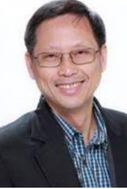 |
|
Dr. Kim-Fung Tsang City University of Hong Kong Hong Kong |
***
Senior Editors |
||||
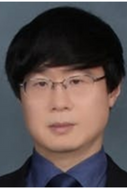 |
 |
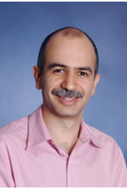 |
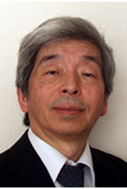 |
|
|
Prof. Jong-Moon Chung
|
Prof. Fabrizio Lamberti
|
Prof. Shahriar Mirabbasi
|
Prof. Fumitaka Ono
|
|
|
Yonsei University
|
Politecnico di Torino
|
Sharif University of
Technology |
Tokyo Polytechnic
University |
|
| Korea | Italy | Canada | Japan | |
***Associate Editors |
||||
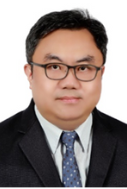 |
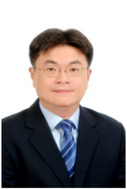 |
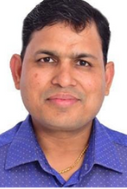 |
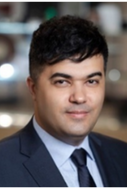 |
|
| Prof. Chih-Peng Fan | Prof. Yu-Cheng Fan | Prof. Brij B. Gupta | Dr. Alireza Jolfaei | |
| National Chung Hsing University |
National Taipei University of Technology |
Asia University | Flinders University | |
| Taiwan | Taiwan | Taiwan | Australia | |
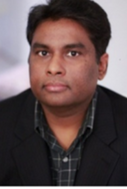 |
 |
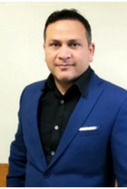 |
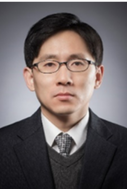 |
|
| Prof. Srinivas Katkoori | Prof. Wing-Kuen Ling | Prof. Shahid Mumtaz | Prof. Sangheon Pack | |
| University of South Florida |
Guangdong University of Technology |
Instituto de Telecomunicaçõces |
Korea University | |
| USA | China | Portugal | Korea | |
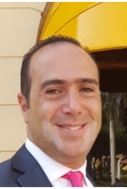 |
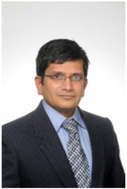 |
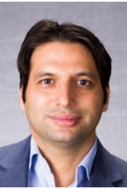 |
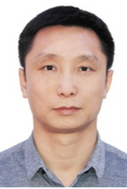 |
|
| Prof. Ayman Radwan | Prof. Sreeraman Rajan |
Dr. Himanshu Thapliyal (Vetting Advisory Committee Member) |
Prof. Haijun Zhang (Vetting Advisory Committee Member) |
|
| University of Aveiro | Carleton University | The University of Tennessee, Knoxville |
Harbin Institute of Technology |
|
| Portugal | Canada | USA | China | |
 |
 |
 |
 |
|
|
Dr. Muhammad Ikram Ashraf |
Prof. Ali Kashif Bashir (Vetting Advisory Committee Member) |
Dr. Siqi Bu |
Prof. Lai Hang Leanne Chan | |
| Nokia Bell Labs | Manchester Metropolitan University | The Hong Kong Polytechnic University | City University of Hong Kong | |
| Finland | UK | Hong Kong | Hong Kong | |
 |
 |
 |
 |
|
| Prof. Long Cheng |
Dr. Hao Ran Chi (Vetting Advisory Committee Member) |
Dr. Yuemin Ding (Vetting Advisory Committee Member) |
Dr. Kazi Huq | |
| North China Electric Power University |
Instituto de Telecomunicações |
University of Navarra | Ofinno | |
| China | Portugal | Spain | USA | |
 |
 |
 |
 |
|
| Dr. Haesik Kim |
Dr. Chun Sing Lai (Vetting Advisory Committee Member) |
Dr. Carman K.M. Lee | Dr. Weizhi Meng | |
| VTT Technical Research Centre of Finland | Brunel University London | The Hong Kong Polytechnic University | Technical University of Denmark | |
| Finland | UK | Hong Kong | Denmark | |
 |
 |
 |
 |
|
| Dr. Lucia Pepa | Prof. Arun Kumar Sangaiah | Prof. Lei Shu | Dr. Wei Wei | |
| Università Politecnica delle Marche | National Yunlin University of Science & Technology | Nanjing Agricultural University, China | Xi'an University of Technology | |
| Italy | Taiwan | University of Lincoln, UK | China | |
 |
 |
 |
 |
|
| Prof. Zhou Wu | Prof. Hui Xia | Prof. Shen Yin | Prof. Mingbo Zhao | |
| Chongqing University | Ocean University of China | Norwegian University of Science and Technology | Donghua University | |
| China | China | Norway | China | |
 |
 |
|||
| Dr. Zheng Zhigao | Dr. Xiaokang Zhou | |||
| Wuhan University | Shiga University | |||
| China | Japan | |||
****
Former Editors-in-Chief |
|||
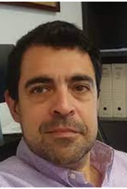 |
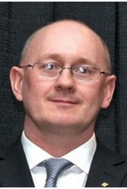 |
 |
|
|
Prof. Fernando Pescador
|
Prof. Simon Sherratt
|
Wayne Luplow
|
|
|
Universidad Politécnica
de Madrid |
University of Reading
|
Zenith R&D Laboratory,
LG Electronics
|
|
| 2017-2021 | 2011-2016 | 1975-2011 | |
